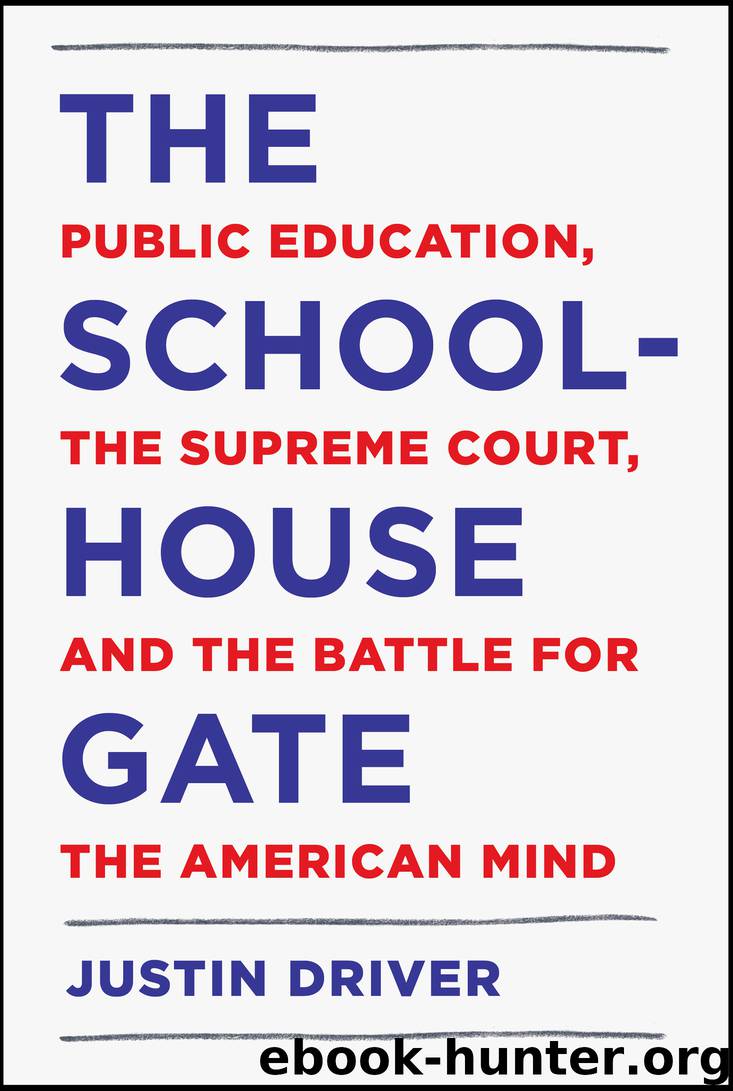The Schoolhouse Gate by Justin Driver

Author:Justin Driver
Language: eng
Format: epub
Publisher: Knopf Doubleday Publishing Group
Published: 2018-09-03T16:00:00+00:00
A CODA ON BUSING
It bears mentioning that the busing program engendered by Swann in Charlotte—after some initial turmoil—eventually garnered widespread acclaim. Following the Court’s decision, many white families evaded the opinion’s effects by removing their children from public schools and enrolling them instead in the more than two dozen private schools—often called “segregation academies”—that blossomed around Mecklenburg County. These private institutions, at their height, educated fully one-sixth of the area’s white students. For the students who remained in public schools, moreover, the early experiences of desegregated education were far from idyllic, as violence erupted with distressing frequency. “We were so segregated that many blacks had never encountered whites close up either,” one Charlotte student recalled. “So there was a lot of tension….A fight between two people, if one was white and the other black, became not just a personal thing, but the start of a race riot.”148 Yet it did not take long for this tense atmosphere to dissipate. Judge McMillan, with the assistance of the racially integrated Citizens Advisory Group, annually adjusted school populations both to minimize student travel time required by desegregation and to prevent schools from becoming more than 40 percent black—commonly understood as a “tipping point” that, if exceeded, would trigger mass white abandonment of public schools. By 1975, school conditions had so thoroughly stabilized that Judge McMillan announced, in an order subtitled “Swann Song,” he would no longer personally oversee matters, provided only that the desegregation measures continued.149 Prompted by McMillan’s withdrawal, some national media outlets observed that Mecklenburg residents at that time generally “accepted” busing, and in 1983 The New York Times reported that a dominant majority of students “supported” the practice.150
While it may be enticing to attribute these rosy accounts to liberals’ dreams masquerading as reported fact, they find support with contemporaneous evidence on the ground. In October 1984, President Ronald Reagan—less than one month away from his successful bid for reelection—delivered a speech in Charlotte, where he railed, “[B]using takes innocent children out of the neighborhood school and makes them pawns in a social experiment that nobody wants….And we’ve found out that it failed.”151 Although Reagan anticipated the friendly audience would cheer this surefire applause line, the remark fell utterly flat and met only silence. After the speech, a Republican and Reagan supporter in the audience would call the remark “insensitive.”152 Residents of Mecklenburg County (even those who would attend a Reagan rally) viewed busing not as an unmitigated failure but as a rousing success. In this vein, The Charlotte Observer—in an editorial titled “You Were Wrong, Mr. President”—firmly criticized Reagan for failing to appreciate that the area’s “proudest achievement of the past 20 years is not the city’s impressive new skyline or its strong, growing economy” but rather “its fully integrated public school system.” The Observer rapped Reagan on the knuckles for stirring up “ugly emotions and unfounded fears that this community confronted and conquered” long ago: “Maybe we shouldn’t expect you to know a great deal about Charlotte-Mecklenburg and its public schools.
Download
This site does not store any files on its server. We only index and link to content provided by other sites. Please contact the content providers to delete copyright contents if any and email us, we'll remove relevant links or contents immediately.
Day by Elie Wiesel(2249)
The Age of Genius by A. C. Grayling(2175)
Gideon's Spies: The Secret History of the Mossad by Gordon Thomas(1955)
The Gulag Archipelago (Vintage Classics) by Aleksandr Solzhenitsyn(1730)
FATWA: Hunted in America by Pamela Geller(1724)
Columbine by Dave Cullen(1500)
Examples & Explanations: Administrative Law by William F. Funk & Richard H. Seamon(1332)
The Rule of Law by Bingham Tom(1320)
Men Explain Things to Me by Rebecca Solnit(1317)
Anatomy of Injustice by Raymond Bonner(1270)
Three Cups of Tea by Greg Mortenson(1261)
ADHD on Trial by Michael Gordon(1243)
That Every Man Be Armed by Stephen P. Halbrook(1241)
Gideon's Spies by Gordon Thomas(1218)
Palestinian Walks by Raja Shehadeh(1144)
The Source by James A. Michener(1138)
Fast Times in Palestine by Pamela Olson(1122)
Nothing to Envy by Barbara Demick(1042)
Constitutional Theory by Carl Schmitt(1038)
